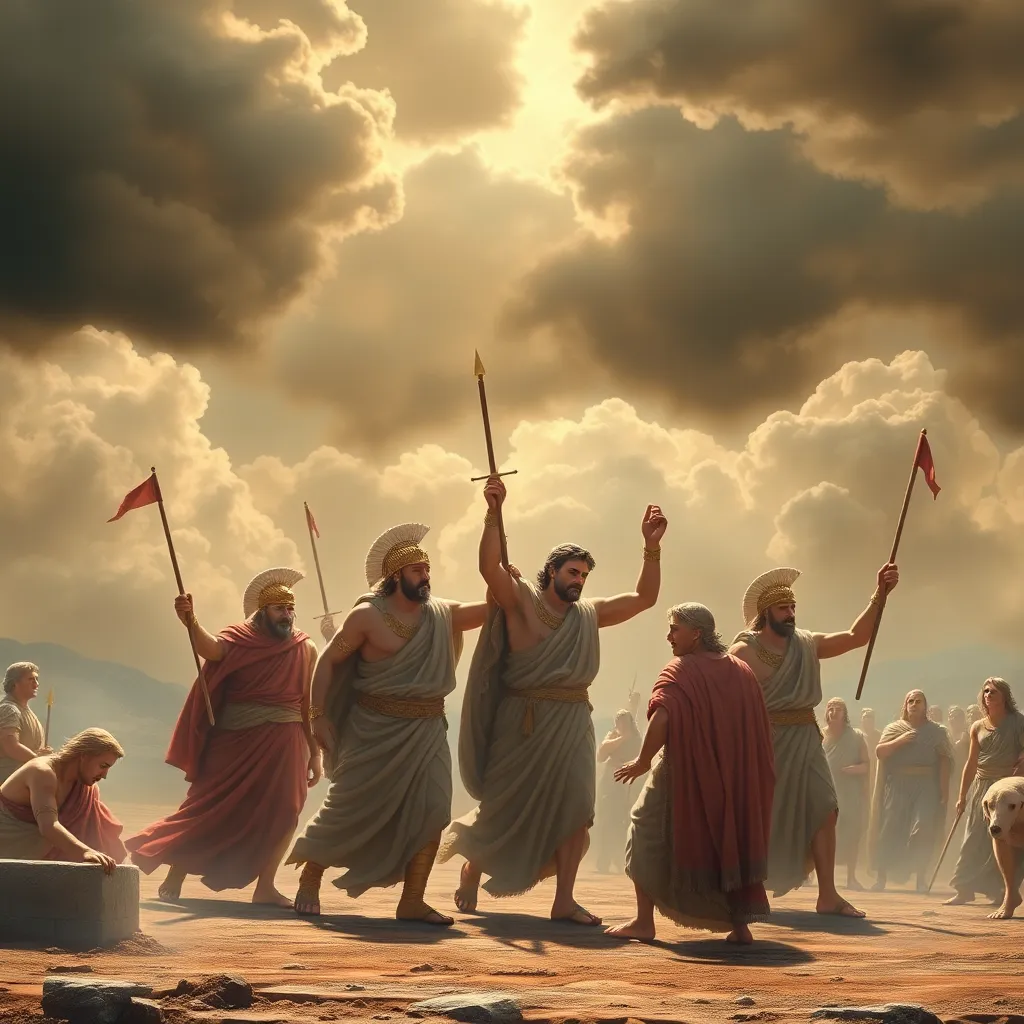The Role of the Chorus in Depicting the Trojan War in Tragedy
I. Introduction
The chorus in Greek tragedy serves as a fundamental element that enhances the storytelling and emotional depth of the narrative. Defined as a group of performers who comment on the action of the play, the chorus provides insights, reflections, and emotional context to the unfolding drama.
The Trojan War, a pivotal theme in Greek mythology, has been explored in countless tragedies, highlighting its complex interplay of heroism, suffering, and moral dilemmas. This article delves into the multifaceted role of the chorus in depicting the Trojan War within tragic plays, unraveling its significance in conveying the human experience of war.
II. Historical Context of the Chorus in Greek Tragedy
The origins of the chorus can be traced back to ancient Greek theater, where it initially served as a means of storytelling, providing background information and context to the audience. Over time, the chorus evolved through the works of various playwrights, including Aeschylus, Sophocles, and Euripides, each of whom contributed to its complexity and depth.
In the context of the Trojan War, the chorus takes on particular significance, acting as a conduit for societal views and collective emotions surrounding the conflict. The chorus not only narrates events but also reflects the moral and ethical implications of war, providing a lens through which the audience can engage with the tragic themes presented.
III. Functions of the Chorus in Tragic Plays
The chorus in Greek tragedy serves several essential functions, each contributing to the depth of the narrative:
- Narrative and commentary roles: The chorus often provides background information and commentary on the events of the play, guiding the audience’s understanding.
- Emotional resonance and audience engagement: By expressing collective emotions, the chorus fosters a deep emotional connection between the audience and the characters.
- Moral and ethical reflections: The chorus frequently reflects on the moral implications of war, urging the audience to consider the consequences of violence and conflict.
IV. The Chorus as a Character in the Trojan War Narratives
In the narratives surrounding the Trojan War, the chorus often embodies societal views and collective emotions, serving as a character in its own right:
- Representation of societal views: The chorus encapsulates the thoughts and feelings of the community, voicing fears, hopes, and grievances.
- Voice of reason or dissent: At times, the chorus acts as a moral compass, offering wisdom or challenging the actions of the main characters.
- Individual roles within the chorus: Members of the chorus may take on specific roles that highlight different perspectives, adding layers to the narrative.
V. Case Studies: Notable Tragic Plays Featuring the Chorus and the Trojan War
Several notable tragedies featuring the chorus and the theme of the Trojan War stand out in Greek literature:
- “Agamemnon” by Aeschylus: The chorus in this play reflects on the consequences of war and the cycle of violence, emphasizing themes of fate and retribution.
- “The Women of Troy” by Euripides: The chorus serves as a voice of lamentation, expressing the suffering of the women left behind in the aftermath of the war.
- “Trojan Women” by Euripides: Here, the chorus embodies the despair and helplessness of those affected by war, making a poignant commentary on the human cost of conflict.
In each of these plays, the chorus plays a pivotal role in enhancing the emotional depth and moral complexity of the narratives, providing a powerful reflection on the tragic consequences of the Trojan War.
VI. Thematic Exploration: War, Suffering, and Humanity
The chorus’s role in highlighting the tragedy of war is profound. Through their lyrical expressions, they uncover the themes of loss, honor, revenge, and the shared suffering that accompanies armed conflict:
- Highlighting the tragedy of war: The chorus emphasizes the futility and devastation caused by war, encouraging the audience to reflect on its impact on humanity.
- Exploration of themes: The chorus addresses themes such as honor in battle, the quest for revenge, and the pain of loss, weaving a rich tapestry of human experience.
- Mediator between audience and events: By articulating the collective emotions and moral dilemmas, the chorus bridges the gap between the audience and the unfolding tragedy on stage.
VII. The Chorus in Contemporary Interpretations of the Trojan War
In modern adaptations of Greek tragedy, the chorus continues to hold relevance, often reimagined to fit contemporary contexts:
- Modern adaptations: Various playwrights and directors have adapted the chorus for modern audiences, exploring themes of war and suffering in new light.
- Relevance in discussions of war: The chorus’s reflections on the consequences of conflict resonate in today’s discussions about warfare and its impact on society.
- Innovations in staging: Contemporary performances often experiment with the staging and performance of the chorus, enhancing their emotional impact and relevance.
VIII. Conclusion
In summary, the chorus in Greek tragedy serves a multifaceted role that significantly enhances the portrayal of the Trojan War. Through its narrative, emotional, and moral functions, the chorus invites the audience to engage deeply with the themes of war and suffering. The enduring legacy of the chorus continues to resonate in contemporary interpretations, reminding us of the timeless nature of these human experiences.
Ultimately, the chorus not only enriches our understanding of the Trojan War but also serves as a poignant reflection on the complexities of human existence, the morality of conflict, and the shared suffering that transcends time and culture.




